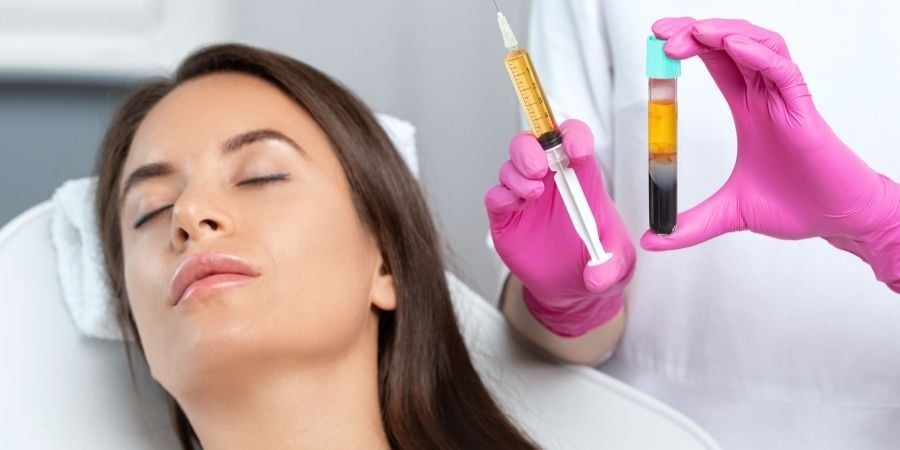Rosacea and redness are common skin concerns that manifest as persistent redness, visible blood vessels and sometimes small, red or pus-filled bumps. This condition normally affects the face and its cause is not fully understood, but often linked to a combination of genetic and environmental factors.
Several triggers can worsen rosacea including sun exposure, stress, hot or cold weather, alcohol, spicy foods and certain skincare products. Since everyone's skin is unique, understanding what triggers your rosacea is key to managing flare-ups effectively.
Treatment for rosacea should be tailored to your specific skin type and severity of symptoms. It often involves a combination of at-home skincare and professional treatments designed to reduce inflammation and redness while strengthening the skin barrier. Our skin specialists will work closely with you to create a personalised plan to calm and soothe your skin.
Early signs of rosacea can mimic other skin conditions, such as acne or skin irritation, making diagnosis challenging. However, if more than one of the following signs are present for a while, there’s a good chance the redness you're experiencing may be caused by rosacea.
%20(1200%20x%20250%20px)%20(1200%20x%20500%20px)%20(1).webp?width=1076&height=500&name=The%20Hampton%20Clinic%20Square%20(1200%20x%20628%20px)%20(1200%20x%20250%20px)%20(1200%20x%20500%20px)%20(1).webp)
Managing rosacea begins with understanding the different types and severities of redness. Here are the three types of rosacea affecting the skin:
Subtype One (Erythematotelangiectatic Rosacea or ETR): This type is characterised by persistent redness, flushing and visible blood vessels. The skin may feel sensitive and prone to irritation. The condition may cycle through periods of flare-ups and remission.
Subtype Two (Papulopustular Rosacea): Often mistaken for acne, this type includes redness along with red bumps and pustules. The skin can appear inflamed, and the condition may cycle through periods of flare-ups and remission.
Subtype Three (Phymatous Rosacea): This less common form of rosacea causes thickened skin and irregular surface texture, particularly around the nose. Over time, it can lead to a bulbous appearance.
Rosacea can't be cured, but you can take steps to control your symptons. Our expert team is here to guide you through the process, ensuring you receive the most effective care. During your consultation, we’ll discuss your specific symptoms, triggers and skin concerns to develop a comprehensive plan that helps manage and reduce your rosacea for clearer, calmer skin.
Here are some of the treatments we might recommend for rosacea:
Often, a combination of treatments is the most effective approach. Book your skin consultation for an in-person assessment.
%20(1).jpg)
Sep 12, 2025 5:15:00 PM
-1.jpg)
Sep 4, 2025 3:15:00 PM

Aug 27, 2025 12:30:00 PM

Aug 20, 2025 1:30:00 PM

Copyright @ 2026 The Hampton Clinic